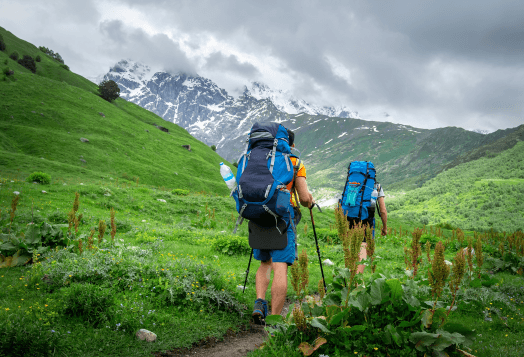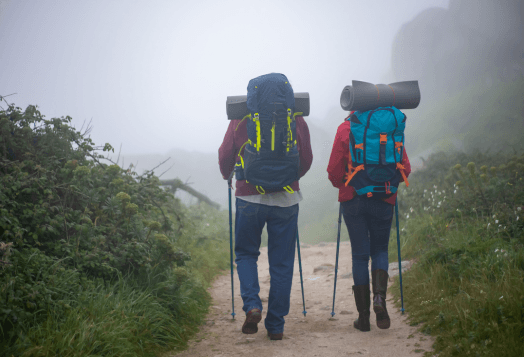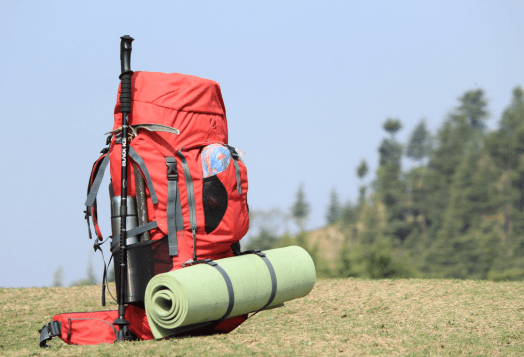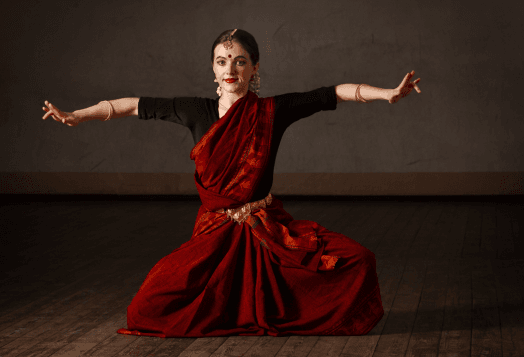Some paths can’t be discovered without getting lost. From Himachal’s pine-fringed valleys to the Northeast’s misty ridges, these treks are where stories begin and comfort zones end. But let’s be honest, planning a trek here can get tricky. So we’ve mapped the best treks in North India with all the need-to-knows to help you trek smart, not hard.
Why Trek in Himachal & the Northeast?

If you're wondering why people keep going back for trekking in Himachal or keep raving about the serenity of trekking in Northeast India, here’s your answer:
1. Scenic Diversity
Imagine everything from sunlit meadows (like those on the Bhrigu Lake trek) to snow-capped passes like Buran Ghati, or even chasing waterfalls in South Goa. Add in glacial streams, apple orchards, and pink rhododendron forests; it’s a nature lover’s buffet.
2. Cultural Immersion
Trekking in Himachal takes you through sleepy villages in Kullu and Spiti, where you might be offered fresh apricots or stories from the locals. On the other hand, trekking in Northeast India offers a peek into untouched tribal lifestyles—think bamboo cooking, traditional chants, and smoky kitchens that double as community hubs.
3. All-Season Options
From summer snowfields to monsoon-drenched meadows and crisp autumn forests, these regions offer year-round options. Treks like Chandrakhani Pass and Bhrigu Lake are even monsoon-friendly.
4. Range of Difficulty
Whether you’re looking for a peaceful weekend trail or a high-altitude challenge, trekking in Himachal has it all, from the beginner-friendly Kareri Lake Trek to demanding adventures like the Pin-Bhaba Pass. Likewise, trekking in Northeast India has something for every kind of trekker.
Top Trekking Routes in Himachal Pradesh
Here are some of the most talked-about and loved treks in North India, especially for those seeking the full magic of trekking in Himachal:
Trek | Duration | Difficulty | Highlights |
Bhrigu Lake Trek | 4 days | Easy–Moderate | Vivid alpine lake, sweeping meadows, great for beginners |
Beas Kund Trek | 4 days | Moderate | Close-up views of Hanuman Tibba, the river source, glaciers |
Chandrakhani Pass Trek | 5 days | Moderate | Crosses from Kullu to Parvati Valley, ideal in the monsoon |
Hampta Pass Trek | 6 days | Moderate | Kullu to Lahaul crossover, rivers, rocks, and snow |
Rupin Pass Trek | 7 days | Moderate–Difficult | Waterfalls, hanging villages, and river crossings |
Buran Ghati Trek | 8+ days | Moderate–Difficult | Snow wall descent, alpine beauty, glacial lakes |
Pin-Bhaba Pass Trek | 9 days | Difficult | Rugged high-altitude entry to Spiti Valley |
Kareri Lake Trek | 4 days | Easy–Moderate | Forests, shepherd trails, and a postcard-worthy lake |
Sar Pass Trek | 6-7 days | Difficult | Himalayan wildlife, pine forests, snow slopes |
Shrikhand Mahadev Trek | 8+ days | Difficult | Spiritual challenge, panoramic Himalayan views |
Whether you're tackling the Buran Ghati Trek in Himachal or just dipping your boots into the trail with a Bhrigu Lake trek guide, there’s no shortage of adventure in trekking in Himachal.
Trekking Routes in Northeast India: The Hidden Gems

If you’re craving untouched beauty and soulful silence, trekking in Northeast India might just steal your heart. The trails here are remote, the crowds are non-existent, and the cultural richness is unparalleled.
Phoktey Dara Trek (Sikkim-West Bengal Border)
Duration: 6–7 days
Highlights: Views of four of the world’s five highest peaks, rhododendron forests, and sunrise magic from Singalila Ridge.
Dzukou Valley Trek (Nagaland–Manipur Border)
Duration: 2–3 days
Highlights: Carpeted meadows, blooming lilies, rare herbs, and peaceful terrain.
Kugti Pass Trek (Himachal, bordering Chamba & Lahaul)
Duration: 6–7 days
Highlights: Less-travelled, culturally rich, and dotted with ancient temples—perfect for solitude seekers.
If you want to explore even more, ask a local guide about Animal Pass, Dev Ropa, or Deo Tibba, quiet but soul-stirring options that most tourists don’t even know about.
Tips for Trekking in North India

No matter which region you choose, good prep makes a great trek. Here’s what you need to keep in mind while preparing for the best treks in North India:
Gear Essentials
Invest in quality trekking boots, waterproof covers, quick-dry clothes, trekking poles, and a solid backpack, make sure to check the whole list of trekking essentials. First aid kits and water purification tablets are non-negotiable.
Acclimatise Smartly
Avoid rushing into high-altitude zones. Plan gradual ascents and rest days to prevent AMS (Acute Mountain Sickness).
Guides & Permits
For trekking in Northeast India, permits are often mandatory, and local guides are a must. Even for trekking in Himachal, hiring a guide adds safety, insights, and route flexibility.
Know the Seasons
Plan wisely: the Chandrakhani Pass trek in monsoon is a safe bet, but avoid high passes like Pin-Bhaba during rains. June to September suits rain-shadow regions like Spiti.
Respect Nature
Follow Leave No Trace principles. Camp responsibly, don’t litter, and respect local customs and communities.
So, Which Trail Will You Conquer?
The best treks in North India are more than just pretty paths; they're portals into another way of life. Whether you're wandering past glaciers in trekking in Himachal, or meditating in wildflower fields while trekking in Northeast India, each step is its own reward.
Trekking in Himachal gives you everything: high-altitude challenges, cultural texture, and trails that range from beginner-friendly to “why am I doing this?” brutal. Meanwhile, trekking in Northeast India is for seekers of quiet, of culture, and of landscapes that feel untouched by time.
Whether it's the Buran Ghati Trek Himachal, the spiritually rich Shrikhand Mahadev, or the emerald stillness of Dzukou Valley, these routes aren’t just the best treks in North India; they’re the kind that stay with you. So tie those laces, pack that backpack, reach out to travel experts, and breathe in the mountain air; it’s time to go.




